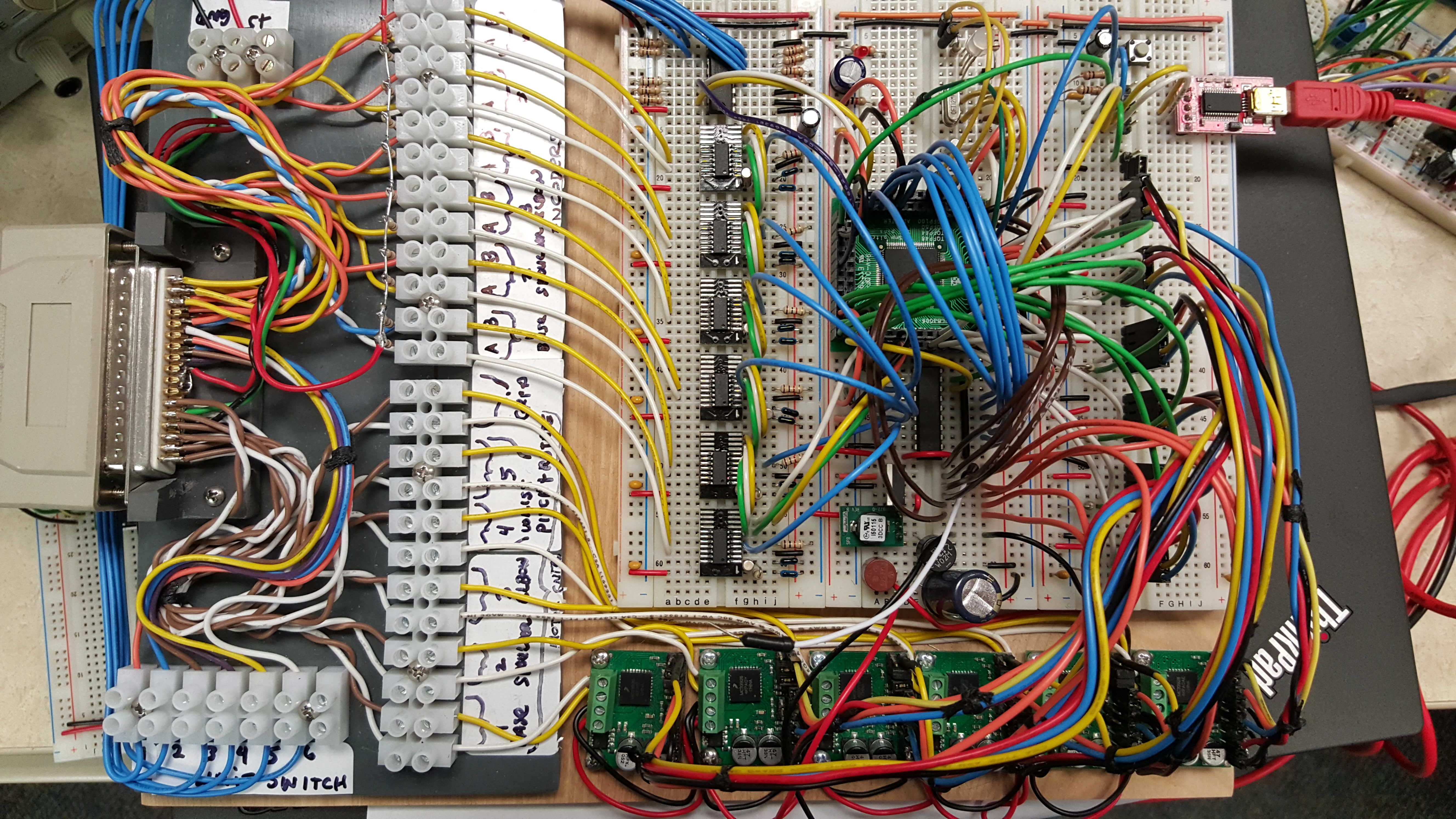Important changes to repositories hosted on mbed.com
Mbed hosted mercurial repositories are deprecated and are due to be permanently deleted in July 2026.
To keep a copy of this software download the repository Zip archive or clone locally using Mercurial.
It is also possible to export all your personal repositories from the account settings page.
You are viewing an older revision! See the latest version
Homepage
Program uses a LPC1768 processor for controlling a robotic arm. The basis for the program is the Axis () class which uses a PID controller to actuate a DC motor with quadrature encoder feedback.
The Axis Class has 3 dependencies (MotCon, LS7366LIB, and PID. The class encapsulates the required functionality of controlling a DC motor with encoder feedback through pin assignments, and SPI bus, and a pointer for the limit switch source.
The LS7366 encoder interface IC off-loads the critical time and counting requirements from the processor using an SPI bus interface for the class. The Axis class then uses a state machine to perform trapezoidal movement profiles with a Ticker class. Parameters can be adjusted through the serial interface using a FT232RL or similar USB to serial interface IC for computer communication.
The MotCon class is a basic class that defines a PWM output pin and two direction signals intended to control a number of different H-Bridge motor driver IC options.
 .
.
Above is the prototype for the controller. Oringinally, a PCF8574 I/O expander was used to read the limit switches by the I2C bus. This has now been re-written to use 6 external interrupts directly for the limit/homing switches. Six motor driver breakout boards using the MC33926 motor driver chip were used to drive the motors.
/media/uploads/jebradshaw/100_2490.mp4 Short homing and calibration demo.
I use the mbed online compiler to generate the .bin file, use bin2hex to convert it and upload the hex file using Flash Magic to the processor with the serial bootloader. I prefer to use the FT232RL usb to serial converter IC for PC comms due to the high level of reliability and USB driver support (typically already built in Windows 7+). I've started putting this on a PCB and hope to finish by the end of the month (Dec 2015).
Joe B